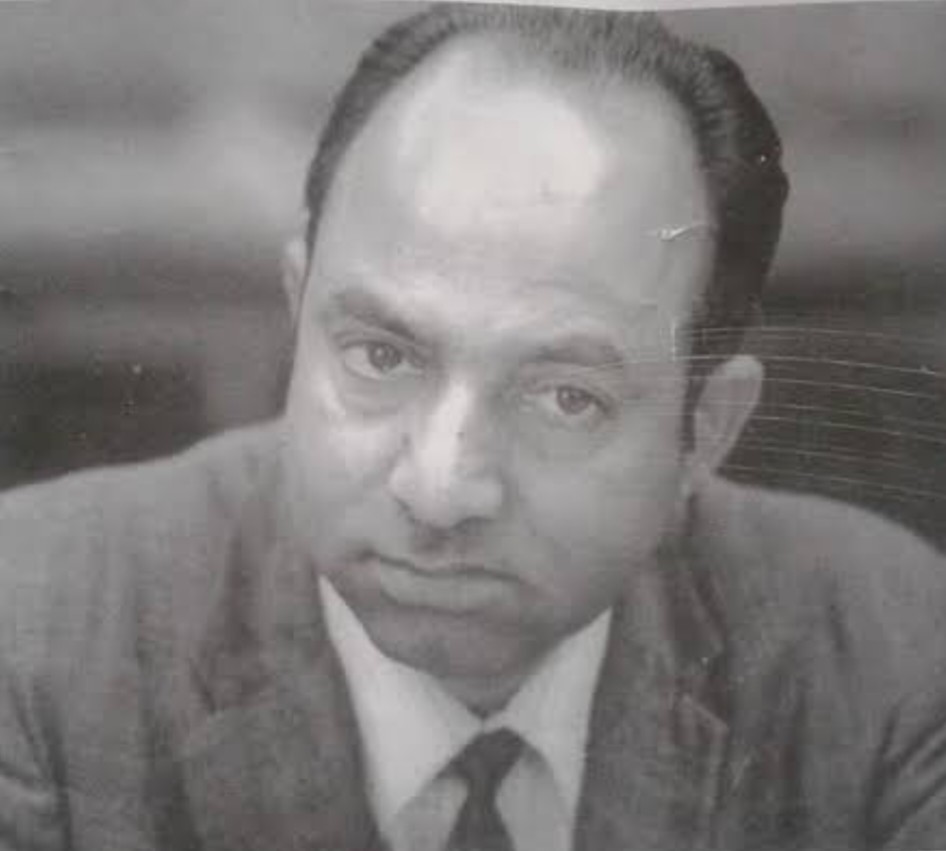 Kashmiri fiction writers have gained recognition not only for their beautiful short stories but also for their remarkable success as playwrights. Among these outstanding writers, Ali Mohammad Lone stands out as an acclaimed playwright. While Lone also wrote novels and stories, his true mastery lay in the genre of drama. His achievements in the field of playwriting are exemplary.
Kashmiri fiction writers have gained recognition not only for their beautiful short stories but also for their remarkable success as playwrights. Among these outstanding writers, Ali Mohammad Lone stands out as an acclaimed playwright. While Lone also wrote novels and stories, his true mastery lay in the genre of drama. His achievements in the field of playwriting are exemplary.
Ali Muhammad Lone was born on September 27, 1926, in the Drogjan locality of Srinagar. After receiving early education at home, he graduated from S. P. College in 1946. Lone Sahib worked for some time as an assistant editor at the daily Khidmat in Srinagar. He also had a brief stint with the state’s infantry regiment (Militia), now known as Jammu and Kashmir Light Infantry (JAKLI), on a meager monthly salary of rupees five.
Meanwhile, Radio Kashmir was established, and Lone joined as a clerk/copyist. Through his sheer talent and perseverance, he gradually rose to the positions of a scriptwriter and assistant producer. In 1965, he left Radio Kashmir and joined the J&K Academy of Art, Culture, and Languages, where he eventually retired as deputy secretary in 1981.As a matter of facr,Radio Kashmir became the creative outlet for Lone, where he discovered his passion for writing.
In addition to English and Kashmiri, Lone had a good command over Persian and Hindi languages. Initially, he wrote in Urdu until 1952 when he shifted his focus to Kashmiri. He authored a novel in Urdu titled “Shahid Hai Teri Arzoo.” Lone’s first Kashmiri prose work, “Asi Ti Chi Insaan,” was published in 1952. It was a memoir-based prose that delved into the backdrop of the Amarnath Yatra.
Lone also achieved success in translating Gorky’s novel “Mother.” Although the number of Kashmiri stories he wrote is not extensive, the ones he did write are highly readable and impactful. Lone was influenced by the left-oriented Progressive Writers’ Movement, which produced legends like Rahman Rahi, Ghulam Nabi Khayal, late Ghulam Nabi Firaq, and others.
One of Lone’s most popular short stories, “Mogli-Gaffar,” was translated from Kashmiri into Hindi by me for my collection “Kashmiri Ki Shresth Kahaniya.” In this story, Lone presents the nature of animals in an incredibly heart-touching manner. The lively characterizations of Sul Saudagar, the Pakora Seller, and LaptanLathar showcase Lone’s profound storytelling abilities.
As previously mentioned, Lone Sahab stands out as the most esteemed playwright of Jammu & Kashmir, with a remarkable stock comprising approximately 200 radio plays, several short stories, a good number of stage dramas, and two noteworthy novels titled “EassTe Che Insaan” (in Kashmiri) and “Shahid Hai Teri Aarzoo” (in Urdu). It is worth highlighting that Lone Sahab’s creative genius also extended to the realm of cinema, as he served as the screenplay and dialogue writer for the pioneering Kashmiri feature film “MaenzRaath.”
Lone Sahab’s father, Abdul Rehman Lone, may not have received formal education, yet he possessed a profound passion for the Persian language and poetry. It was through his father that Lone Sahib was introduced to Persian epics such as “Tilsim-e-Hoshruba,” “Gulistan-Bostan,” and “ChaharDarvesh.” By the time he reached the eighth standard, Lone Sahib had already probed into the captivating short stories of Prem Chand and Sudharshan.
During his college years, his reading range expanded even further, and a young Lone Sahab found himself enthralled by the works of literary luminaries such as Maxim Gorky, Fyodor Dostoevsky, Karl Marx, and many others.
Among Lone Sahab’s celebrated literary contributions, his historical play “Suyya,” penned in 1971, holds a special place. Additionally, his radio serial “TeVyethRoozPakaan” (And quiet flows the Vitasta) became a milestone in the rich history of Kashmiri theatre.
It is worth noting that during a period heavily affected by floods, three Kashmiri plays authored by the late Ali Mohd Lone, Shri Amin Kamil, and Noor Mohammad Roshan were published by the State Information Department. These plays vividly depicted the impact and devastation caused by the floods, along with the measures aimed at mitigating them through community participation. Among these plays, only one production, “Wiz Chi Saaney” by late Ali Mohammad Lone, was presented by the State Cultural Conference in various villages, with government sponsorship.
Leaving behind an esteemed and cherished legacy of creative works, Lone Sahib departed from this world in a tragic manner. Six years after his retirement, he met with a fatal road accident near Sonawar on December 21, 1987. The literary community, as well as his avid readers and listeners, were deeply shocked by his untimely loss, and their longing for his presence lingers even today.
The writer is former Fellow,IIAS,RashtrapatiNivas,Shimla,Ex-Member,Hindi Salahkar Samiti,Ministry of Law & Justice,Senior Fellow, Ministry of Culture, GOI.




